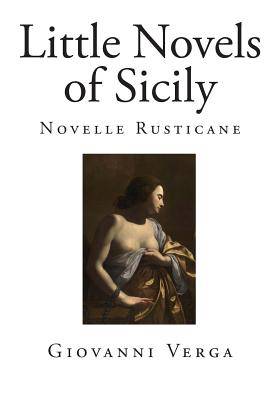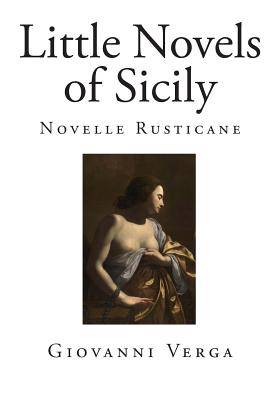
- Afhalen na 1 uur in een winkel met voorraad
- Gratis thuislevering in België vanaf € 30
- Ruim aanbod met 7 miljoen producten
- Afhalen na 1 uur in een winkel met voorraad
- Gratis thuislevering in België vanaf € 30
- Ruim aanbod met 7 miljoen producten
Zoeken
Omschrijving
Little Novels of Sicily - "Novelle Rusticane" - Giovanni Verga. Translated by D. H. Lawrence. Giovanni Carmelo Verga (2 September 1840 - 27 January 1922) was an Italian realist (Verismo) writer, best known for his depictions of life in his native Sicily, and especially for the short story (and later play) Cavalleria Rusticana and the novel I Malavoglia (The House by the Medlar Tree). The first son of Giovanni Battista Catalano Verga and Caterina Di Mauro, Verga was born into a prosperous family of Catania in Sicily. He began writing in his teens, producing the largely unpublished historical novel Amore e Patria (Love and Country); then, although nominally studying law at the University of Catania, he used money his father had given him to publish his I Carbonari della Montagna (The Carbonari of the Mountain) in 1861 and 1862. This was followed by Sulle lagune (On the Lagoons) in 1863. Meanwhile, Verga had been serving in the Catania National Guard (1860-64), after which he travelled to Florence several times, settling there in 1869. He moved to Milan in 1872, where he developed his new approach, characterized by the use of dialogue to develop character, which resulted in his most significant works. In 1880 his story collection Vita dei campi (Life in the Fields), including "Fantasticheria" ("Daydreaming"), "La Lupa" ("The She-wolf"), and "Pentolaccia" ("The Plaything"), most of which were about rural Sicily, came out. It also included "Cavalleria Rusticana" ("Rustic Chivalry"), which he adapted for the theatre and later formed the basis for several opera librettos including Mascagni's Cavalleria rusticana and Gastaldon's Mala Pasqua!. Verga's short story, "Malaria", was one of the first literary depictions of the disease malaria.
Specificaties
Betrokkenen
- Auteur(s):
- Uitgeverij:
Inhoud
- Aantal bladzijden:
- 108
- Taal:
- Engels
- Reeks:
Eigenschappen
- Productcode (EAN):
- 9781500730932
- Verschijningsdatum:
- 4/08/2014
- Uitvoering:
- Paperback
- Formaat:
- Trade paperback (VS)
- Afmetingen:
- 178 mm x 254 mm
- Gewicht:
- 199 g

Alleen bij Standaard Boekhandel
+ 31 punten op je klantenkaart van Standaard Boekhandel
Beoordelingen
We publiceren alleen reviews die voldoen aan de voorwaarden voor reviews. Bekijk onze voorwaarden voor reviews.











